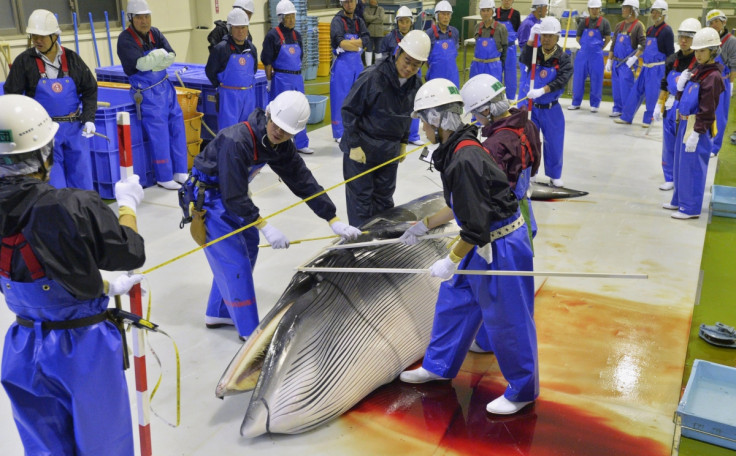Japan's whaling fleet returns from Antarctic with 333 minke whales including pregnant females

As many as 333 minke whales have been caught by Japan's whaling fleet during its 2015-16 Antarctic expedition. The government has confirmed the latest catch and the return of the fleet.
According to Japan's Institute of Cetacean Research, the capture includes pregnant females as well. Tokyo defends the practice by saying the whaling is for scientific research purposes. But environmentalists have been furious that almost all of the captured whales end up on diners' plates.
The Japanese fleet comprising four survey ships sailed to Antarctic on 1 December sparking global outrage. Ending its 115-day voyage, the fleet arrived at the Shimonoseki port in western Japan on 24 March. About 200 of the 333 minke whales are said to be pregnant, though this could not be independently verified.
Japan insists the whale population is large enough to sustain the hunt, which as per official records is for studying the health and migration patterns of minke whales. Japan considers whaling as part of its culture.
Earlier in 2014, the International Court of Justice (ICJ) had ruled that Japan's whale hunt is anything but scientific. Research is one of the exceptions under which whaling is allowed by international regulations. Environmentalists have been accusing Japan of using this loophole to hunt whales that end up on dinner plates rather than in research laboratories. The practice has also evoked sharp condemnation from countries like New Zealand and Australia, which called the whaling "deeply disappointing".
© Copyright IBTimes 2025. All rights reserved.






















